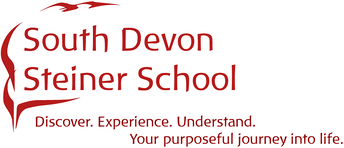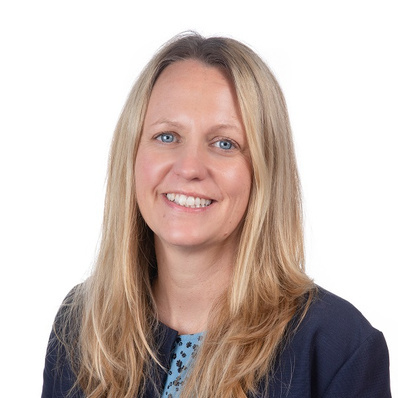Why the Redundancies at South Devon Steiner School?
Fears that small independent schools Like The Steiner School will be hard hit by the new VAT rules are already proving true.
The South Devon Steiner School has had to make the hard choice to let some staff go in order to protect its long term survival.
And at Park School teachers are being moved to a new pension scheme to save tens of thousands in employer contributions. Meanwhile parents are “really scraping their pennies together” to afford the extra fees.
 “It’s a horrible rollercoaster”, one head said. At the Steiner School, I spoke to Jeff Van Zyl, education manager, and Kaycee Anand, who runs admissions. They didn’t want to say how many of the 50 or so staff are going, but stressed the restructuring was due to their decision not to pass on the full 20 per cent VAT as a fee rise. Instead the fees are going up by 5%.
“It’s a horrible rollercoaster”, one head said. At the Steiner School, I spoke to Jeff Van Zyl, education manager, and Kaycee Anand, who runs admissions. They didn’t want to say how many of the 50 or so staff are going, but stressed the restructuring was due to their decision not to pass on the full 20 per cent VAT as a fee rise. Instead the fees are going up by 5%.
This means the school is taking a financial hit of some £250,000. Reaction to the job cuts from parents , teachers and teaching assistants have been “mixed”, Mr Van Zyl said.
He told me: “It’s terrible. There is no good aspect of redundancy. Everybody gets hurt in a process like that. At the same time we know that if we are to continue to serve our parents and pupils we have to unfortunately adjust our size. We will do whatever is necessary to stay open.
“It’s a legal process. What we have got to do is follow the steps of our governance. We are caught in a legal framework here. We have to do it with the right discretion and do it properly.”
A Steiner education is unique and it’s the underlying philosophy which brings parents from all over the country to Devon. The nearest Steiner to Totnes is in Dorset, the Exeter school having closed. Fees are presently just under £4000 per term for classes 6 to 12. Kaycee said that of the 60-100 new pupils arriving every year, three quarters are from outside Devon. The families move specifically to give their children a Steiner education.
This includes woodworking and crafts, no use of technology like laptops and phones for the first few years, and few exams. There are currently 248 pupils ,who can stay from the age of 2 to 18.
The three other independent schools in the Totnes Pulse area are St Christopher’s in Staverton, Park on the Dartington Hall estate, and Totnes Independent School, which is housed in what was the girls’ boarding school for KEVICC (when it was a grammar school, and into its comprehensive years).

Victoria Kennington is the south west ambassador for the Independent Schools Association – and used to be head at St Christopher’s, which was founded in 1991 by her mother. “Everybody is concerned,” she said. “but I think the fall out will be in the longer term. Parents will be loathe to disrupt their children’s education. But in two years’ time – can they still afford it? All our schools are small – completely different from Eton and Harrow!”
The main argument made by Labour for putting VAT on school fees is that it would be progressive, raising more than 1£ billion a year from a group that is mostly well-off (wealthy parents and their children) in order to spend it on improving the lot of an on-the-whole-less-well-off group (children in state education).
In an analysis published in July the Institute for Fiscal Studies note that the share of pupils in private schools across the UK has hardly changed at all over time, despite 20% real-terms increase in fees since 2010 and a 55% rise since 2003. They estimate that an effective VAT rate of 15% would lead to a 3 – 7% reduction in private school attendance which would generate a need for £100 – £300 million in extra school spending per year in the medium to long run. (Source UK Parliamentary Briefing Paper).
But Mr Van Zyl says that most Steiner parents are not wealthy. “We knew the VAT was going to affect us. We were really caught by the Govt starting in January. We thought it would be next September, which really gives us a short time to prepare.
“What we have done… I think of it as a rugby ball… what the Government expected us to do was to pass it on – we didn’t. Why? Because ours are not the wealthy kind. If we had passed it on we would run a risk of a significant number having to leave. And rather than do that we decided we would only pass on 5%. You are looking at a loss of around £250,000 that we are absorbing.”
Kaycee added that the loss of business rate exemption – being taken away from charities such as small schools – and the upcoming National Insurance increase employers have to pay have deepened the impact on all school budgets. She added no children have yet left because of the additional fees. She said: ”In an ideal world no-one would be made redundant. I think this organisation has probably dealt with it in the most sensitive and mindful way possible within the legal framework. We have tried to keep it to an absolute minimum.”
“I think there is general gratitude we haven’t just put on the full 20%, and also upset that we are restructuring and certain parts of the school will be impacted. We have held two all school meetings. And now there’s an amazing team of parents that are forming a marketing group. The PTA has now got 9 trustees and are galvanised to get together to fundraise. I feel like actually while there was a little bit of noise and hurt in the beginning most people are now saying what can we do to make a positive difference.”
The ISA, Steiner and others, including our Lib Dem MP Caroline Voaden, have pointed out that the Government’s looked at all schools the same, and not seen the nuances in the business. There are around 2,600 independent schools in the UK. Mr Van Zyl said: ”We are a school which in our local ecology is the cheapest of the independent schools. We are the most affordable. The danger is that our parents can’t really afford independent schools – they can just manage to afford us – so when you put 20 per cent on, our demographic is deeply challenged. We are not Eton. A lot of our demographic are here out of choice, philosophical choice, but they really cannot afford much more. I’m absolutely certain independent schools will go down in the next couple of years.” Kayce added: ”The priority was to be here for future generations and this is the sacrifice to ensure that.”

I also spoke to Laura Hare, head teacher at Park, which has been on the Dartington Hall estate for nearly 40 years. It caters for primary aged children with an emphasis on caring for nature and caring for themselves. It particularly suits children who find mainstream education a challenge.
Laura revealed that pushing the start date at which VAT has to be charged from September to January had caused real worries. “It changed the game significantly.” Park has decided to charge the full 20% and to ask their staff of four teachers to leave the teachers’ pension scheme for a cheaper one because the employer contribution is 28.6% – around £50,000 a year. Money
the school can ill afford. Laura said: “We are trying to be really transparent. Luckily we were understaffed so we haven’t had to make anyone redundant.” And she said the prospect of closing the school was a real consideration. They’ve managed to come back from the brink. “I had to calculate exactly what loss we could hold.” With no assets – the buildings are rented from the estate – the school’s only income comes from fees for the 46 children.
She thinks establishments like Park and Steiner and many other small schools have been treated unfairly. “We are a small team doing a big thing and we still have all the regulations big schools do. No consideration has been given to the categories of schools. It’s a horrible rollercoaster to ride when you are care givers for people’s children and under the presssure of ‘we might not have a school tomorrow’. We really hope Park can continue.”


Dear Totnes Pulse,
It is interesting and telling to note that the article ‘Why the redundancies at South Devon Steiner School’ did not include any interviews with the school teaching staff in general, and the teachers and teaching assistants in particular, and the refusal of the education manager and the admissions manager to say exactly how many staff were being made redundant.
If the Pulse had done so then Kaycee Anand’s claim that the Steiner management team and presumably the trustees have dealt with the redundancy process in “the most sensitive and mindful way possible” would be
challenged by the experiences of the redundancy process itself by those teaching staff affected. And an organisation like Steiner which promotes itself on the bedrock principles of compassion, respect for relationships,sensitivity and gentleness should be modelling in practice those principles for everyone, staff and pupils at South Devon Steiner School.
The Totnes Pulse would have learned that the actual process amounted to affected staff being called to the school office, told in a peremptory manner of their redundancy, ordered to leave the school and not to return to their class, and not given the opportunity to say goodbye to class and colleagues. Moore Barlow lawyers who advise independent school leadership teams on the management of redundancy processes and procedures emphasise the Key Principles that should inform any redundancy process: transparency; appropriate time to be given to the processes;genuine engagement in consultation meetings where different scenarios are shared with the whole staff;full and genuine caring support for those in need of it.
I have not seen any demonstration or evidence in your article that these principles were the drivers at South Devon Steiner school. Mr Van Zyl comments that “everyone gets hurt in a process like that “.
But where is the compassionate mitigation?